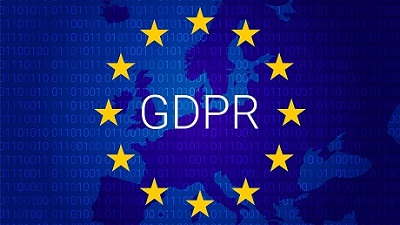|
MeWe, a social media app centered around data privacy, has seen a surge in downloads in recent weeks as Big Tech companies crackdown on user content. The app that calls itself the "anti-Facebook" added 2.5 million new users last week, bringing its total userbase to 16 million -- 50% of which live outside the U.S., MeWe spokesperson David Westreich told Fox Business. "People all over the world are leaving Facebook and Twitter in droves because they are fed up with the relentless privacy violations, surveillance capitalism, political bias, targeting, and newsfeed manipulation by these companies," Westreich said. "MeWe solves these problems." He added that the platform "is the new mainstream social network with all the features people love and no ads, no targeting, no newsfeed manipulation, and no BS." MeWe, which said it surpassed 8 million users in June, ranked No. 7 overall and No. 4 among social media apps by U.S. iPhone downloads on Jan. 10, according to mobile data and analytics provider App Annie. The week prior to that date, MeWe sat outside the top 1,400 apps overall and at No. 66 among social apps, App Annie found. The app on Thursday sat at No. 14 among social media apps on the App Store and No. 13 among all free apps on Google Play after several days of skyrocketing downloads. The app told ZDNet that its users spikes frequently when people are looking for an alternative social media app to Facebook, Twitter, and the like that does not infringe on the privacy of its users. The website's "About" tab says MeWe users have control over their own interaction and privacy settings, and the platform does not sell or share user data with advertisers. "The big technology companies, you know who they are, had reverted to treating [users] as commodities," MeWe's website states. "They somehow mistook people signing up to use their services as a welcome invitation to target, track, spy, and sell our information to advertisers and the government. All in all, it felt pretty creepy." MeWe aims to offer an alternative to those websites by offering "decency, privacy, and respect for social media users." Other social media and communication apps with a focus on privacy have also seen surges in downloads over the last two weeks after the Jan. 6 Capitol riot. Big Tech companies including Facebook, Instagram, Twitter, and YouTube have made a number of policy changes and updates since the riot in an effort to quell violent or conspiratorial rhetoric on their platforms. The policy changes have promoted social apps that do not censor content or emphasize data privacy like Parler, DuckDuckGo, Signal, and Telegram to see spikes in user numbers. Encrypted messaging app Signal, for example, ranked No. 1 among overall and social media apps by U.S. iPhone downloads on Jan. 9 and Jan. 10. The week prior, it ranked No. 927 among overall apps and No. 45 among social apps, according to App Annie. DuckDuckGo, a search engine and Google alternative that does not profit from user data hit No. 1 among overall U.S. iPhone downloads and No. 1 among utility apps on Jan. 10, up from No. 308 and No. 14, respectively, the week before. "These types of shifts in messaging and social networking apps are not unusual," Amir Ghodrati, director of market insights at App Annie, said in a statement. "Due to the nature of social apps and how the primary functionality involves communicating with others, their growth can often move quite quickly, based on current events. We’ve seen growing demand over the last few years for encrypted messaging and apps focused on privacy." Learn more at OUR FORUM. Attackers hid inside Windows systems by wearing the skins of legit processes. The SolarWinds hackers triggered one of their Cobalt Strike implants in the firm's network through a cunning VBScript that was activated by a routine system process, Microsoft has said. Microsoft's deep dive, published yesterday following SolarWinds' own take on the malware, repeated earlier findings that the hackers went to unusual lengths to disguise their intrusion and avoid detection. Specifically, the compromised DLL file was quietly deployed onto targeted systems by mimicking legitimate file names – and the attackers worked between 8 am and 5 pm to increase the odds of not being spotted. It continued: "Applying this level of permutations for each individual compromised machine is an incredible effort normally not seen with other adversaries and done to prevent full identification of all compromised assets inside a network or effective sharing of threat intel between victims." Much of the infosec commentary around the SolarWinds supply chain attack has reused the tired old clichés of stating the attackers were sophisticated, advanced, cunning, soft, strong, thoroughly absorbent, and so on. In this case, the clichés appear to be true because the attackers "first enumerated remote processes and services running on the target host" and only moved through the target network "after disabling certain security services." Those techniques included editing the Windows registries of target machines to disable autostarting of security processes – and then waiting until the target machine was rebooted before moving in for the kill. "The combination of a complex attack chain and a protracted operation means that defensive solutions need to have comprehensive cross-domain visibility into attacker activity and provide months of historical data with powerful hunting tools to investigate as far back as necessary," Microsoft sighed. The analysis includes indicators of compromise and techniques used by the attackers to skate around SolarWinds's networks but, unusually for infosec research, expresses them in plain English that any averagely skilled IT pro can follow. It's well worth a read. The attackers also used the mildly unusual reflective DLL loading attack technique. A full explanation can be read here, also from Microsoft. Briefly, the technique allows malicious DLL files to be loaded into a process without first having been registered with it – and does so from memory, via a custom loader deployed by the attacker, rather than pulling it from a potentially detectable disk location. Relatedly, custom Cobalt Strike loaders developed by the hackers strongly resembled "legitimate Windows file and directory names, once again demonstrating how the attackers attempted to blend in the environment and hide in plain sight," said MS. The autopsies of the biggest supply chain attack for years will doubtless continue, but one thing's for sure: whichever nation-state was behind it, they really knew what they were doing and really didn't want to be caught in the act. Follow this thread and more on OUR FORUM.
The data regulator for the German state of Lower Saxony has fined a local laptop retailer a whopping €10.4 million ($12.5 million) for keeping its employees under constant video surveillance at all times for the past two years without a legal basis. The penalty represents one of the largest fines imposed under the 2018 General Data Protection Regulation (GDPR) not only in Germany but across Europe as well. The recipient is notebooksbilliger.de AG (doing business as NBB), an online e-commerce portal and a retail chain dedicated to selling laptops and other IT supplies. The State Commissioner for Data Protection (LfD) for the state of Lower Saxony said that the company installed two years ago a video monitoring system inside its warehouses, salesrooms, and common workspaces for the purpose of preventing and investigating thefts and tracking product movements. Officials said the video surveillance system was active at all times, and recordings were saved for as much as 60 days in the company's database. But while the retailer thought it was running a banal video monitoring solution, as found in many other businesses across Germany and all over the world, the German data regulator found it to be a gross encroachment on the rights of German workers. "We are dealing with a serious case of video surveillance in the company," said Barbara Thiel, head for LfD Lower Saxony, in a press release earlier this month. "Companies must understand that with such intensive video surveillance they are massively violating the rights of their employees." The German data regulator argued that employees do not have to give up their right to privacy because their employer puts them under suspicion of potentially committing a crime in the future. "If that were the case, companies could extend surveillance without limit," Thiel said. The German official claimed that video surveillance was not to be used as a "deterrent" to prevent crime but only when an employer had justifiable suspicion against certain employees. In those cases, employees could be monitored for limited periods of time until the suspicion was confirmed, and not for years in a row. "Video surveillance is a particularly intensive encroachment on personal rights, because, theoretically, the entire behavior of a person can be observed and analyzed," Thiel said. The LfD head said that because of the constant video monitoring, employees are under continuous stress and pressure to behave as inconspicuously as possible in order to avoid being criticized for their behavior. Furthermore, the German data regulator said that NBB also recorded customers while testing devices in its salesrooms without their knowledge or consent, which represented another major privacy breach. But in a PDF statement published on its website, NBB CEO Oliver Hellmold said the fine and accusation that it monitored employees were unfounded. "At no point was the video system designed to monitor employee behavior or performance. It wasn't even technically equipped for it," Hellmold said. The NBB CEO accused the LfD Lower Saxony office of misconduct. He argued that officials didn't visit its premises during the three-year investigation and that NBB previously made adjustments to its video surveillance system at the office's request in order to become compliant. Furthermore, Hellmold called the fine disproportionate to the company's size and said that they plan to appeal. "It is absurd that authority imposes a fine of more than 10 million euros without sufficiently investigating the matter. Apparently, an example is to be made here at the expense of our company," he said. Continue reading on OUR FORUM. |
Latest Articles
|

